第114章 IV(2)
Tomorrow, when it came, proved to be black and cold, a day of pouring rain. As they filed through the narrow, crowded streets, that harsh Norman city presented no very cheering aspect. They were glad, at last, to find the waterside, to go out on the bridge and breathe the air in the great open space over the river, away from the clatter of cart-wheels and the hard voices and crafty faces of these townspeople, who seemed rough and unfriendly. From the bridge they looked up at the white chalk hills, the tops a blur of intense green under the low, lead-coloured sky. They watched the fleets of broad, deep-set river barges, coming and going under their feet, with tilted smokestacks. Only a little way up that river was Paris, the place where every doughboy meant to go; and as they leaned on the rail and looked down at the slow-flowing water, each one had in his mind a confused picture of what it would be like. The Seine, they felt sure, must be very much wider there, and it was spanned by many bridges, all longer than the bridge over the Missouri at Omaha. There would be spires and golden domes past counting, all the buildings higher than anything in Chicago, and brilliant--dazzlingly brilliant, nothing grey and shabby about it like this old Rouen. They attributed to the city of their desire incalculable immensity, bewildering vastness, Babylonian hugeness and heaviness--the only attributes they had been taught to admire.
Late in the morning Claude found himself alone before the Church of St. Ouen. He was hunting for the Cathedral, and this looked as if it might be the right place. He shook the water from his raincoat and entered, removing his hat at the door. The day, so dark without, was darker still within; . . . far away, a few scattered candles, still little points of light . . . just before him, in the grey twilight, slender white columns in long rows, like the stems of silver poplars.
The entrance to the nave was closed by a cord, so he walked up the aisle on the right, treading softly, passing chapels where solitary women knelt in the light of a few tapers. Except for them, the church was empty . . . empty. His own breathing was audible in this silence. He moved with caution lest he should wake an echo.
When he reached the choir he turned, and saw, far behind him, the rose window, with its purple heart. As he stood staring, hat in hand, as still as the stone figures in the chapels, a great bell, up aloft, began to strike the hour in its deep, melodious throat; eleven beats, measured and far apart, as rich as the colours in the window, then silence . . . only in his memory the throbbing of an undreamed-of quality of sound. The revelations of the glass and the bell had come almost simultaneously, as if one produced the other; and both were superlatives toward which his mind had always been groping,--or so it seemed to him then.
In front of the choir the nave was open, with no rope to shut it off. Several .straw chairs were huddled on a flag of the stone floor. After some hesitation he took one, turned it round, and sat down facing the window. If some one should come up to him and say anything, anything at all, he would rise and say, "Pardon, Monsieur; je ne sais pas c'est defendu." He repeated this to himself to be quite sure he had it ready.
On the train, coming down, he had talked to the boys about the bad reputation Americans had acquired for slouching all over the place and butting in on things, and had urged them to tread lightly, "But Lieutenant," the kid from Pleasantville had piped up, "isn't this whole Expedition a butt-in? After all, it ain't our war." Claude laughed, but he told him he meant to make an example of the fellow who went to rough-housing.
He was well satisfied that he hadn't his restless companions on his mind now. He could sit here quietly until noon, and hear the bell strike again. In the meantime, he must try to think: This was, of course, Gothic architecture; he had read more or less about that, and ought to be able to remember something. Gothic . . . that was a mere word; to him it suggested something very peaked and pointed,--sharp arches, steep roofs. It had nothing to do with these slim white columns that rose so straight and far,--or with the window, burning up there in its vault of gloom . . . .
While he was vainly trying to think about architecture, some recollection of old astronomy lessons brushed across his brain,--something about stars whose light travels through space for hundreds of years before it reaches the earth and the human eye. The purple and crimson and peacock-green of this window had been shining quite as long as that before it got to him . . . .
He felt distinctly that it went through him and farther still . . . as if his mother were looking over his shoulder. He sat solemnly through the hour until twelve, his elbows on his knees, his conical hat swinging between them in his hand, looking up through the twilight with candid, thoughtful eyes.
When Claude joined his company at the station, they had the laugh on him. They had found the Cathedral,--and a statue of Richard the Lion-hearted, over the spot where the lion-heart itself was buried; "the identical organ," fat Sergeant Hicks assured him.
But they were all glad to leave Rouen.